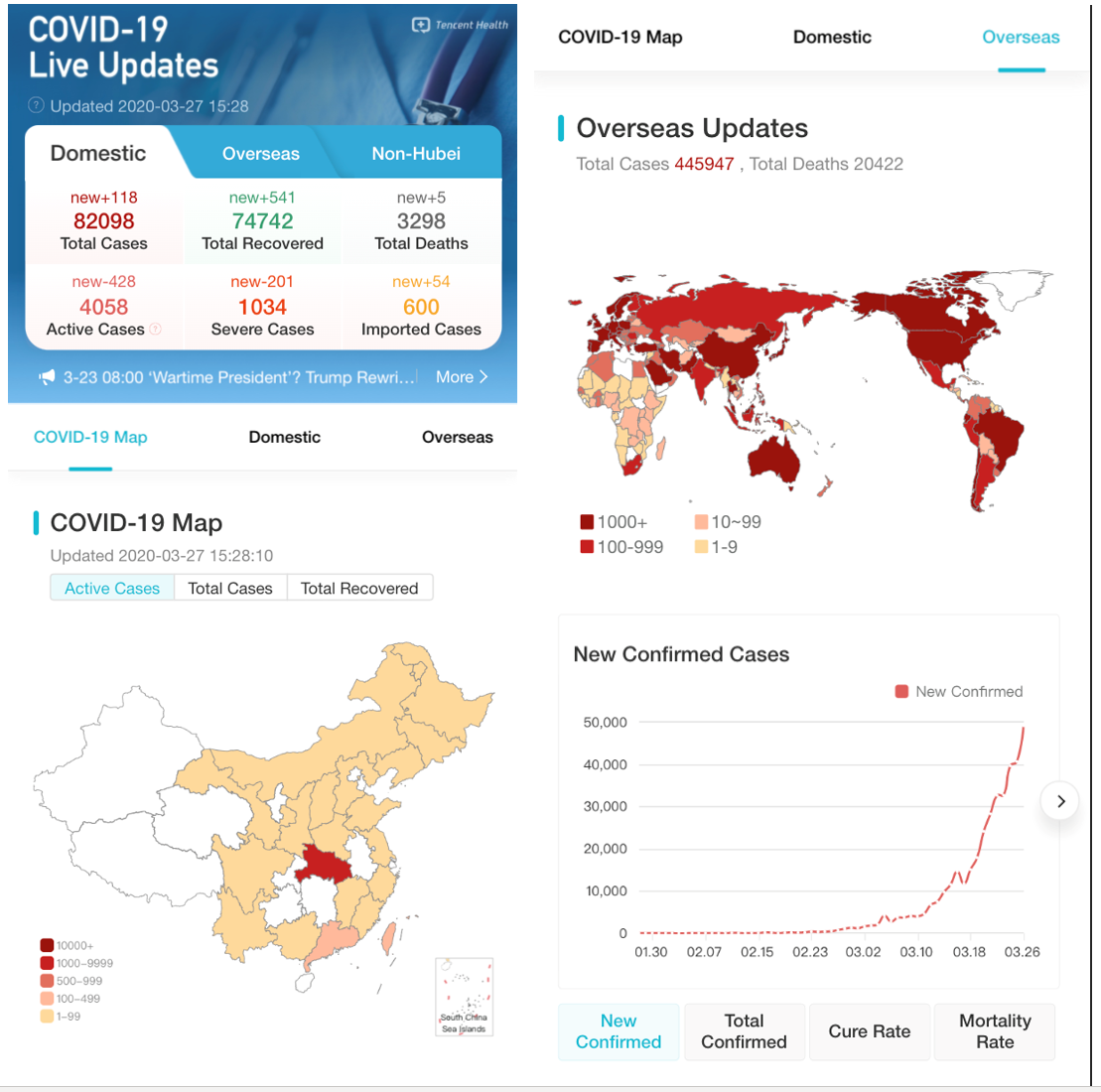Tencent Health Provides Open Source Tools to Help International Communities Fight COVID-19
Tencent Health is making a technological contribution to the global fight against COVID-19 by open-sourcing the international module in its COVID-19 Mini Program (TH_COVID19_International), making an important information resource available for free to people around the world. The Tencent Health Mini Program has answered six billion pandemic-related queries in China over the past two months, and has provided key information on COVID-19 to the public with its timely, accurate and intuitive pandemic data and statistics. The open-source version of the module was officially released on March 27.
The International COVID-19 live updates module (https://static.wecity.qq.com/covid-19trend/dist/index.html) displays global pandemic statistics with maps and charts, covering information such as newly confirmed cases, cumulative confirmed cases, recovery numbers and death toll, as well as the latest pandemic reports from official media sources. People all over the world are able to obtain timely pandemic information via a web app with just a few taps on their mobile phones.

The module is now available on Github (https://github.com/Tencent/TH_COVID19_International). Tencent worker bee source system provides developers with domestic image of Tencent open source projects, helping developers and agencies develop their pandemic-related services.
Since its launch on January 21, the module has provided timely enquiry services for a huge number of WeChat users and offered open access through its web app. Tencent’s partners in sectors such as public services, medical institutions, media, finance, travel, and others are able to leverage the module to provide assistance to the public.?
To better assist the global battle against the pandemic and support rapid deployment, Tencent Health has made the following optimizations in the international module:
Low coupling architecture: the front end, back end and data layer are separated. The low coupling architecture can cope with fast iterations of both the front end and back end more efficiently.
Front-end page configuration: the front-end page can be configured to present different modules according to data sources, which is a flexible and low-cost way to adapt to various channels.
Support data source diversity: the high expandability of the data layer can support automated crawling, manual input and other data input from different sources to cope with the rapidly changing nature of epidemic data.
Intuitive visualization: with the use of advanced visual component technology, users can have multiple intuitive and clear data comparisons in terms of regions, dates and other dimensions of the outbreak.
Going forward, Tencent Health will open up more technological resources to support the global battle against COVID-19, joining hands with developers around the world to fight the virus with technology.
As of March 2020, Tencent has open-sourced 98 projects covering cloud computing, big data, AI healthcare, network security and other areas. TH_COVID19_National is another open source contribution made by Tencent in the field of medical technology following MedicalNet, an AI deep learning pre-training model of Tencent YouTu Lab.??
Related Articles

Tencent Announces AIMIS Medical Image Cloud and AIMIS Open Lab to Accelerate Medical AI and Enhance the Delivery of Healthcare Services
2020.10.20

Harnessing the power of the Internet to combat COVID-19
2020.02.27



